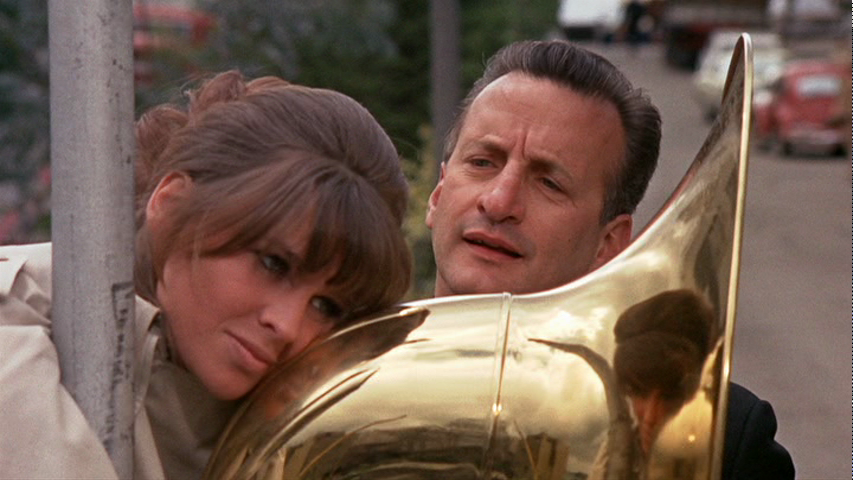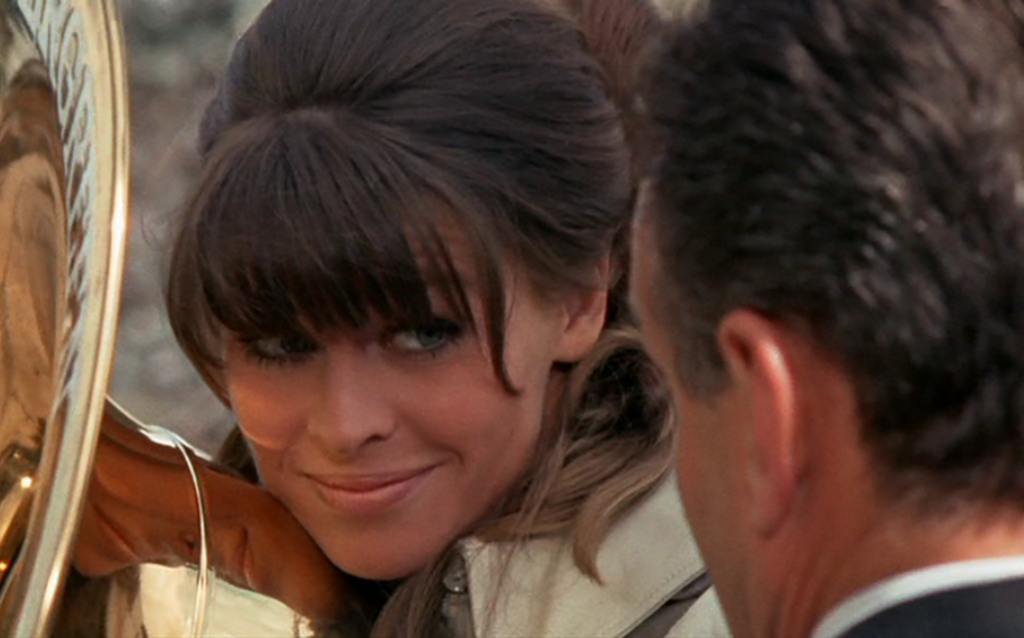The film reflects a world falling apart at all levels. Caught in the 1960s psychedelic zeitgeist that was tearing down the traditional curtain of propriety and social order in the Western world, these characters flounder in an ocean of confusion. With the imposed morality of the old order suddenly in tatters, how does one conduct oneself? Based on what standard does one make choices? Petulia (played by the luminous Julie Christie), her husband David (played by the equally luminous Richard Chamberlain), and their entire upper-class social circle can not even begin to grapple with these questions.
They don’t know themselves at all, so there is nothing inside to replace the old externally imposed code of conduct. Under the old system you wanted what you were told to want, nothing more, nothing less. You did what you were expected to do. Your boxed-in misery was just the sub-aural soundtrack of your life. With the old constraints lifted, the new oppression of uncertainty descends. These people have no idea who they are or what they want and in their struggle they wreak havoc mostly upon themselves, until it runneth over onto innocent—and not so innocent—bystanders.
The deep, deep unconsciousness of the characters in this film is its central theme and its aggravation. I could almost hear the steady hum of their internal vacuity and wanted to slap each of them, in turn, into consciousness.
The plot of “Petulia” is very much of its time and would have been forgotten amidst all the other mid-century arcana. But Richard Lester’s direction and Nicholas Roeg’s cinematography raise this story to an enduring portrait of human souls squirming under an existential magnifying glass. There are so many dramatic, vertiginous techniques packed into this film that it could have been chaotic. But they tightly interlock into each other and they are integrated into the emotional plane of the story so that they form a solid structure which holds firm while the social order and the lives of the characters disintegrate within it.

Marriage is the primary social institution “Petulia” uses to explicate the spiritual decimation of the 1970s. In particular, Petulia (Julie Christie) is seeking the perfect mate who will buffer her from the pain of the world. And she never learns the lesson that other people can’t save her from the void inside. In addition, her erstwhile lover Dr. Bollen (George C. Scott) chucks a perfectly good wife and children for no concrete reason. He’s just not feeling it. And Petulia’s perfectly charming, beautiful monster of a husband (Richard Chamberlain) is torn to pieces by his vitriolic self-loathing, which he externalizes onto her. Ultimately, it’s Petulia’s passiveness in the face of this spousal abuse and her inability to remain in an emotionally stable relationship that meshes perfectly with Lester’s sudden visual silences, shifts of pace, and disconnected visual perspectives. These crazy visuals confuse and suffocate Petulia until she sinks down under them.
The superb filmmaking, itself, shows that in the midst of social upheaval it is art that will most quickly and effectively fill the gap with insight and compassion.
Some trivia notes: Janis Joplin appears very briefly in the opening shot! The group she was singing with, Big Brother and the Holding Company, were picked up from the Haight Ashbury scene before hitting the big time. What a tremendous piece of luck. Janis Joplin is the poster child for the generation adrift and untethered in so much freedom that it suffocates them. (If you are unfamiliar with Janis Joplin, she died of a drug overdose at the age of 27, after blazing into fame as one of the best and most famous rock performers of the 1960s.) You will also see cameos from some stalwart character actors of the time: Howard Hesseman, Austin Pendleton, Rene Auberjonios, and Mel Stewart.
Recommendations: An equally interesting, and more modern, investigation of the cost of our culture’s unrealistic expectations of marriage is “Take This Waltz” (2011), or else see a Julie Christie double feature with “Away From Her” (2006).


